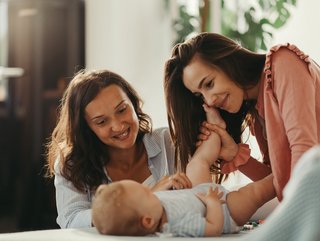Same-sex female couples can access IVF treatment on NHS

The UK government has announced a landmark ruling, to provide female same-sex couples with NHS-funded IVF treatment.
Until now, same sex couples that were assisnged female at birth were asked to provide evidence of at least six attempts to conceive using the costly self-funded intrauterine insemination (IUI) method – costing couples as much as £25,000. Cisgender or hetrosexual couples must try to conceive 2 years before being considered for treatment.
Health and social care secretary Steve Barclay said: “Our health and care system only works if it works for everyone. It is not right that 51% of our population are disadvantaged in accessing the care they need, simply because of their sex.
“The publication of this strategy is a landmark moment in addressing entrenched inequalities and improving the health and wellbeing of women across the country.”
How will the new ruling help same-sex female couples?
Same-sex female couples and individual women who want to become mothers will now have the same access to fertility treatment as hetrosexual couples, which starts with six rounds of IUI funded by the NHS, before moving on to IVF is necessary.
Through the new ruling, which is part of the Women’s Health Strategy, the government has said: “there will no longer be a requirement for [female same-sex couples] to pay for artificial insemination to prove their fertility status”.
Nancy Kelley, CEO of Stonewall, an organisation campaigning for LGBTQ+ rights says: “We are delighted that the UK government has listened to our call for fair and equal access to IVF treatment. For years, lesbians, bi women and trans people have been forced to pay for up to £25,000 of private healthcare before they can access IVF on the NHS, or face giving up their dream of becoming parents.
“This is a giant step towards a world where LGBTQ+ people have the same opportunity as everyone else to build a loving, thriving family of their own.”
The government has also vowed to increase “transparency on provision and availability of IVF so prospective parents can see how their local area performs,” by ending the “postcode lottery” experienced by both hetorsexual and LGBTQ+ couples.
The ruling was made after 55% of 100,000 respondents from across the country called for the inclusion of fertility and pregnancy support in the strategy.






